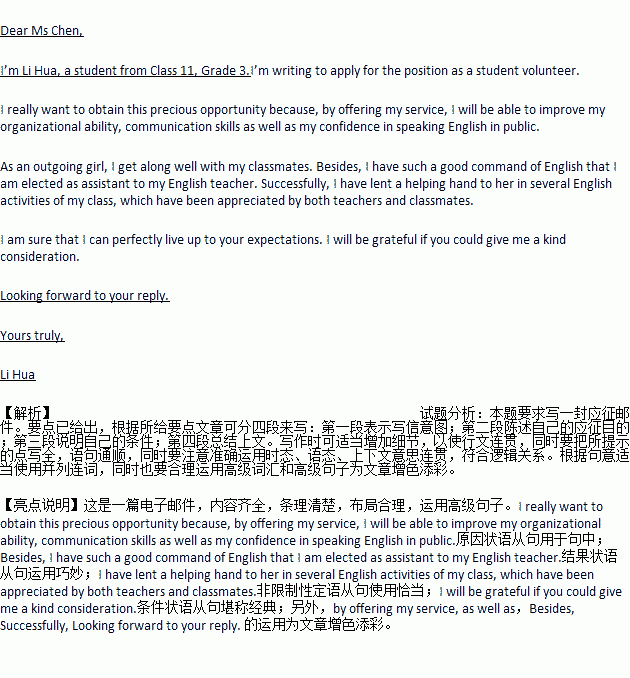题目内容
假定你是李华, 在校报英语专栏看到了学校“英语文化节”的一则招募启事,请阅读启事,并根据写作要点和写作要求写一封应征邮件。
Volunteers Wanted
Our annual English Festival, which will be held on June 15-17, 2015, is now looking for 20 student volunteers to provide service for Talent Show, Speech Contest, and English Debate. If you are interested, please send an application email at your earliest convenience to Ms.Chen at chenlaoshi@aef.com.
写作要点:
1.表达写信意图;
2.陈述应征目的;
3.说明应征条件(性格、能力等)。
写作要求:
1.邮件词数不少于100;
2.开头和结尾部分已写好,不计入总词数;
3.可根据情况增加细节,使行文连贯
4.不能使用真实姓名和学校名称。
Dear MS Chen ,
I’m Li Hua, a student from Class2, Grade 3.
____________________________________________________________________________________________
____________________________________________________________________________________________
____________________________________________________________________________________________
____________________________________________________________________________________________
____________________________________________________________________________________________
____________________________________________________________________________________________
____________________________________________________________________________________________
___________________________________________________________________________
Looking forward to your reply.
Yours truly,
Li Hua
 三新快车金牌周周练系列答案
三新快车金牌周周练系列答案

 ll experienced similar annoying tricks when we were young-the brother who stole your ball and then got you into trouble by telling your parents you had hit him.But Mary and John are not humans.They're African baboons(狒狒).1.
ll experienced similar annoying tricks when we were young-the brother who stole your ball and then got you into trouble by telling your parents you had hit him.But Mary and John are not humans.They're African baboons(狒狒).1.